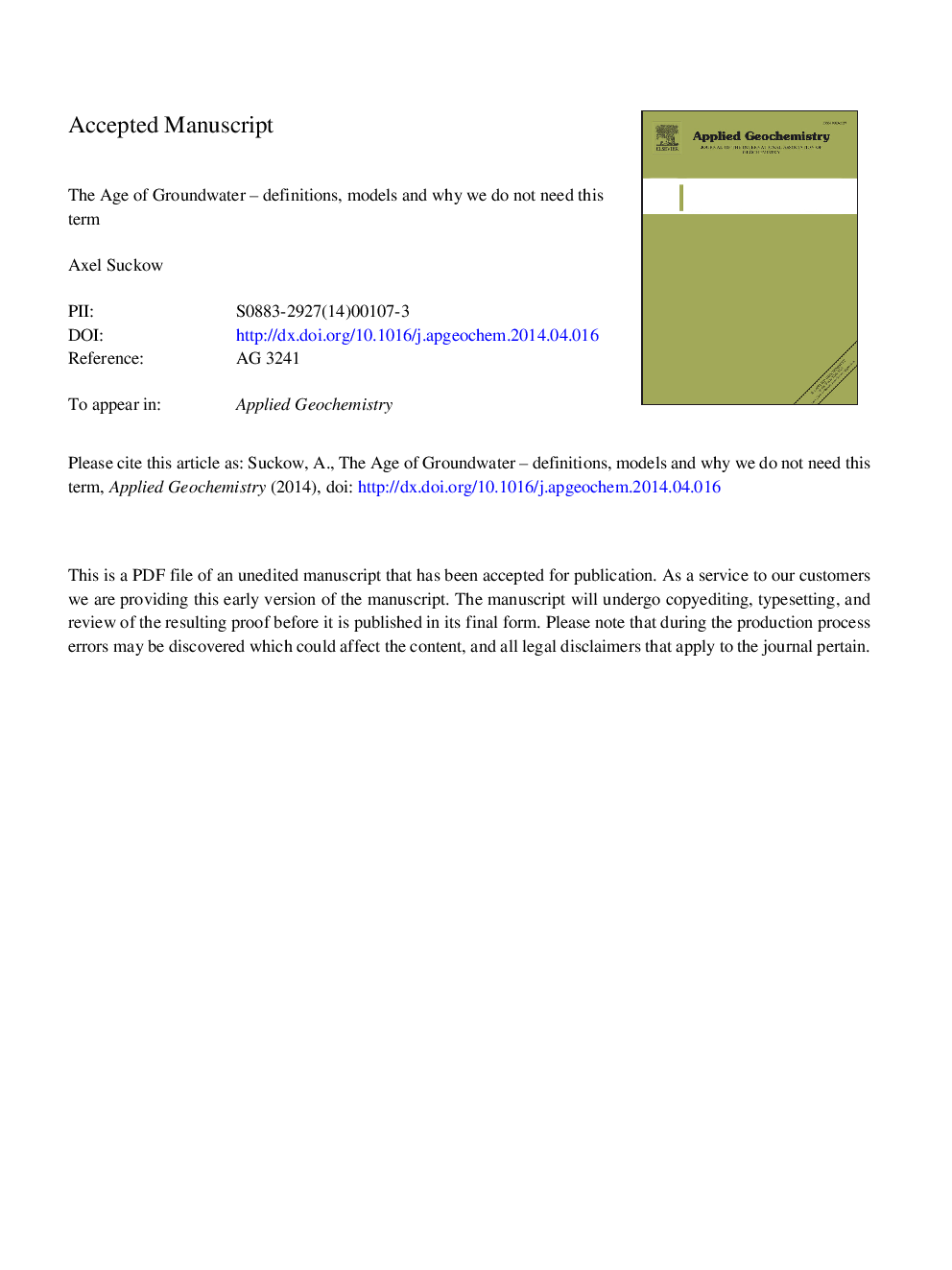| Article ID | Journal | Published Year | Pages | File Type |
|---|---|---|---|---|
| 6335144 | Applied Geochemistry | 2014 | 30 Pages |
Abstract
The use of environmental tracers to characterise time scales when investigating groundwater is a technology that has been in use for half a century. Its usefulness is beyond controversy. However, the use of the word “age” for groundwater connected with these techniques is misleading due to its inherent connection to the general understanding of human age. “Age” as in the understanding of human age cannot be determined for groundwater, although it is a useful zero-order concept abundantly used in this context. This paper describes three basic definitions of “age” for groundwater ((1) idealized age as in particle tracking and piston flow, (2) mean residence time involving an age distribution and (3) apparent age) and discusses their context in view of recent developments in numerical groundwater modelling. It further gives arguments why the term “age” is unnecessary in modern hydrology and groundwater management and how not using it can enhance efficiency in system understanding: not using age needs less modelling effort and allows comparing models directly with measured values instead of comparing models with models.
Related Topics
Physical Sciences and Engineering
Earth and Planetary Sciences
Geochemistry and Petrology
Authors
Axel Suckow,
